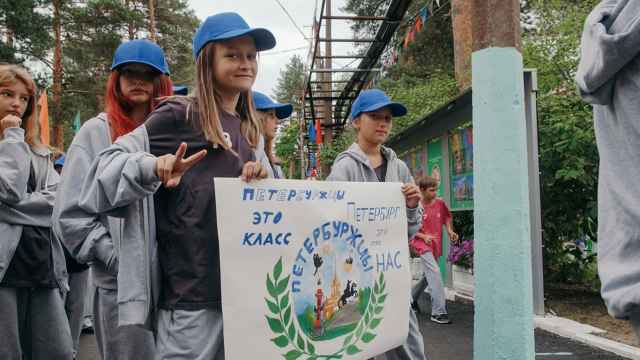KIEV — President Viktor Yanukovych on Wednesday signed into law a bill that will make Russian the official language in parts of Ukraine, ignoring opponents who have warned it risks splitting the country.
Yanukovych's Party of the Regions rushed the bill through parliament last month in what opponents saw as an attempt to rally public support in Russian-speaking regions ahead of October parliamentary elections.
The move led to street protests in Kiev and brawls in the parliament as the opposition, which fears it will lead to the status of Ukrainian as the state language being eroded, fought to block it.
But Yanukovych, who is on holiday in Crimea, took advantage of the lack of political activity in the summer lull to sign it into law.
A statement by the presidential administration said he had instructed his government to take the necessary steps to adopt local legislation to take account of the new law.
Opposition politicians, including jailed former Prime Minister Yulia Tymoshenko and one-time Foreign Minister Arseny Yatseniuk, whose two parties have united to fight an Oct. 28 election together, have described the bill as a "crime against the state" that could set citizens at each other's throats.
"Yanukovych has managed to do everything that the Russian emperors and the Soviet general secretaries could not do. He has passed a death sentence on the Ukrainian language," Oleg Medvedev, an opposition political strategist, said Wednesday.
When Yanukovych signed the law Wednesday, he also set up a body to promote the use of Ukrainian.
(Reuters, AP)
A Message from The Moscow Times:
Dear readers,
We are facing unprecedented challenges. Russia's Prosecutor General's Office has designated The Moscow Times as an "undesirable" organization, criminalizing our work and putting our staff at risk of prosecution. This follows our earlier unjust labeling as a "foreign agent."
These actions are direct attempts to silence independent journalism in Russia. The authorities claim our work "discredits the decisions of the Russian leadership." We see things differently: we strive to provide accurate, unbiased reporting on Russia.
We, the journalists of The Moscow Times, refuse to be silenced. But to continue our work, we need your help.
Your support, no matter how small, makes a world of difference. If you can, please support us monthly starting from just $2. It's quick to set up, and every contribution makes a significant impact.
By supporting The Moscow Times, you're defending open, independent journalism in the face of repression. Thank you for standing with us.
Remind me later.





